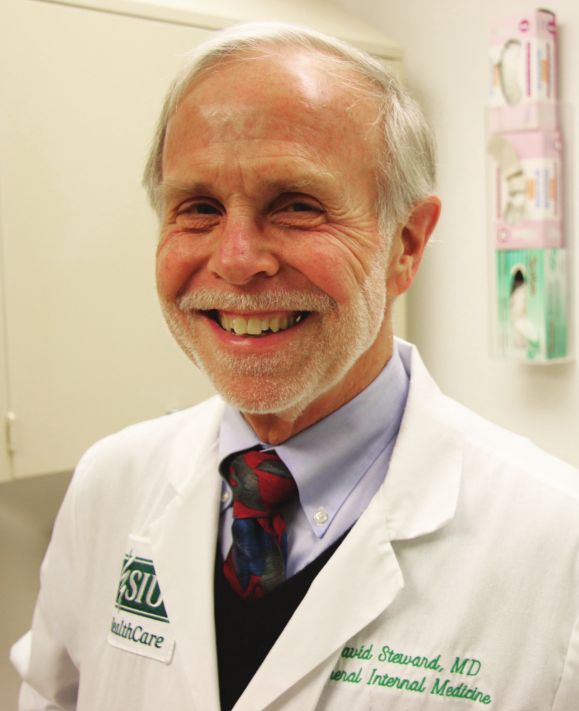Dr. David Steward: 
SIU School of Medicine Office of Community Health and Service
In
order to help someone become healthier, it’s helpful to know everything
about that person. The same holds true with communities. That’s why SIU
School of Medicine in Springfield in 2013 created a new Office of
Community Health and Service. Although the medical school has long been
involved in serving the community, Dr. David Steward, the associate dean
for the department, says the school wants to fine-tune its efforts to
have an even greater effect on the area it serves, which includes much
of central and southern Illinois.
Steward,
who started at SIU School of Medicine in 1975, has a solid résumé with
regard to community health. He has studied regional and local cancer
trends, as well as researching children’s health and childhood obesity.
He is on the SPARC board of directors, serves on two separate boards
with the Illinois Department of Public Health, and is part of St. John’s
Hospital’s Community Benefits Committee. Asked what community health
means, he paraphrases a definition given by the World Health
Organization: the state of complete mental, physical and social
well-being, and not just the absence of disease.
“There
are a lot of other things that go into health,” he said. “Some of it is
economics. Some of it is personal behavior. Some of it is education or
social structure or systems of support. All those things end up
contributing to health. … You can’t separate the socioeconomic status of
the community from the physical and mental health of the community.”
Besides
helping coordinate service projects, one of Steward’s tasks is to study
the 60-plus counties that make up the medical school’s service area and
measure morbidity rates, access to health care, environmental issues,
availability of nutritious food and other factors. Much of that
information can be gleaned from government records, but Steward says
sometimes it’s helpful to simply talk to people.
“A
lot of the times, people who live in a neighborhood can tell you what
the problems are, what causes them stress and makes them feel uncertain
or unhappy or gives them a sense of less well-being.”
Steward
notes that this type of study has the potential to improve the health
of the workforce, lower a person’s medical costs, and create an entire
spectrum of other benefits.
“We’re
here to help,” he said. “We recognize that there are a lot of people
who have terrific expertise and have put in amazing efforts in this area
over many years, so our job is not to get in their way. It’s to support
what they’re doing, and if we can help with resources, organizing or
some other benefit, we’ll do it.”